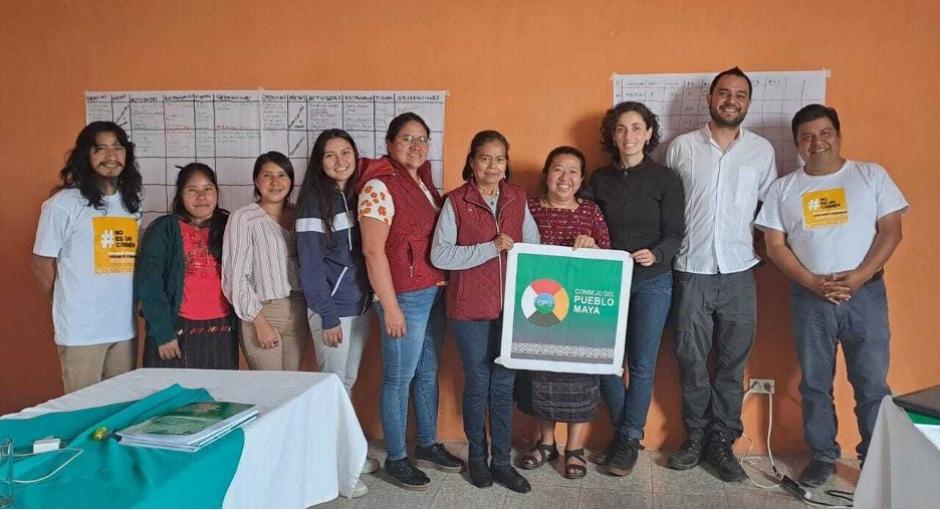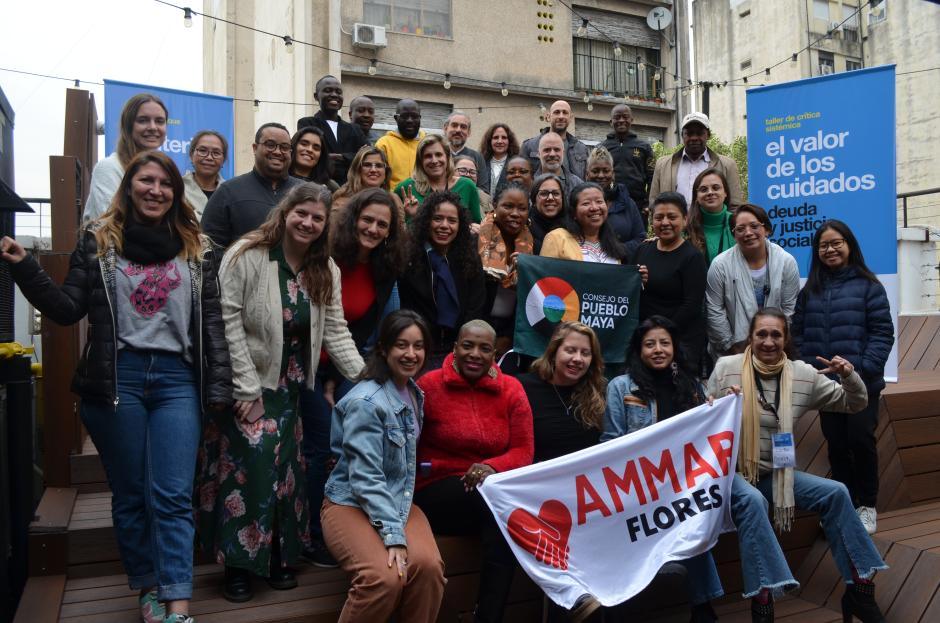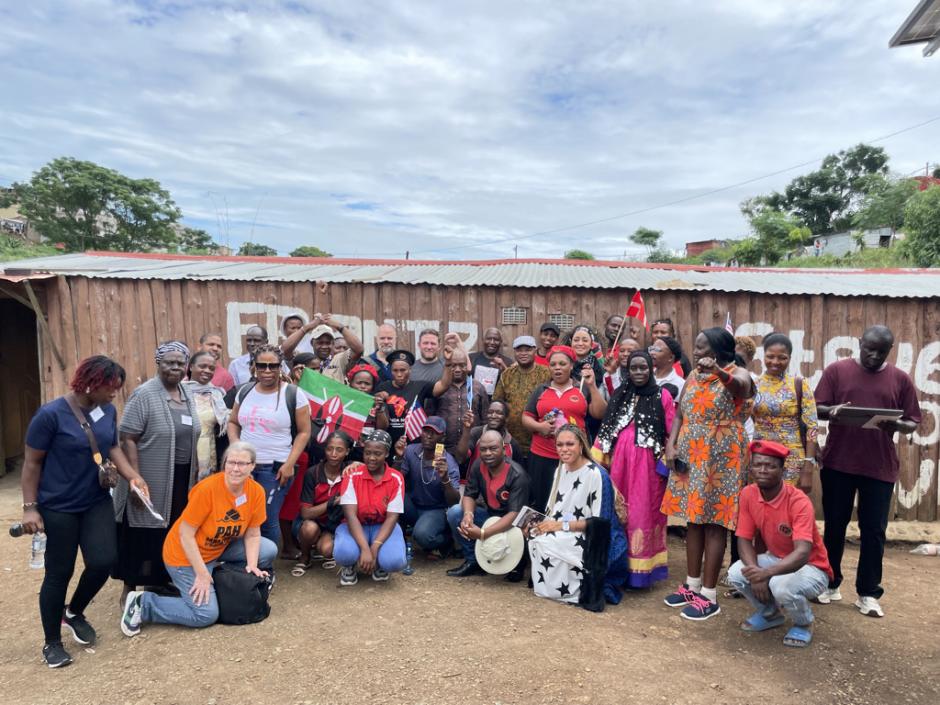The second community-led research project, explores and amplifies communities’ perspectives on losses and damages resulting from climate change, particularly non-economic losses. This initiative will provide learning space and support for six social movements and grassroots groups to gather the data and evidence to counter losses and damages resulting from climate change.
Through an open call, we received expressions of interest from 22 groups across four regions. An Advisory Group composed of NGO and movement members closely evaluated each submission. The evaluation criteria included community leadership, thematic relevance, intersectional feminist approach, added value in participating, and other factors. After a comprehensive review, the six social movements, Indigenous Peoples’ organizations, and grassroots groups that have been selected to participate in this research project are as follows:
- Comité Ambiental en Defensa de la Vida, Colombia
- Comités de Cuenca de Rio Sonora, México
- Rural Women’s Federation – organized by the Centre for Human Rights and Development, Mongolia
- African Indigenous Foundation for Energy and Sustainable Development, Nigeria
- Chimanimani Land and Environment Defenders, Zimbabwe
- Endorois Indigenous Women Empowerment Network, Kenya
Centering Indigenous and Local Communities’ Perspectives on Environmental Justice
‘Loss and damage’ refers to the destructive impacts of climate change that cannot be avoided through adaptation or mitigation. These impacts have huge consequences on human societies and the environment and do not affect everyone equally. Unfortunately, the perspective of communities facing loss and damage, especially women, Indigenous people, the elderly, and youth, often is not considered in mainstream discourses and decision-making processes at local and international levels, such as at the United Nations Framework Convention on Climate Change (UNFCCC) and its regular Conference of Parties (COP). For example, there is a substantial gap in official data regarding non-economic damages and the unequal impacts on specific groups. As a result, decisions made at national and international levels tend to overlook these realities, leading to outcomes that do not adequately address the immediate and long-term needs of affected communities.
The research aims to disrupt the power dynamics that result in the exclusion and marginalization of communities. Through Participatory Action Research methodology (PAR), this initiative actively involves communities in exploring climate-induced losses and damages. Additionally, it seeks to strengthen popular education and movement building and support claims for justice, reparations, and accountability. By challenging dominant narratives around loss and damage, such as market-driven solutions promoted by corporate actors and allied governments, we aim to promote alternative knowledge that centers on the agency and experiences of Indigenous and local communities and their solutions for environmental protection.
Over an 18-month period, the participating groups will undertake a comprehensive process that will consist of identifying research questions, developing methodologies and tools, conducting field research, analyzing data, and developing advocacy strategies and outputs relevant to community struggles. In the final phase, in the fall of 2024, all research findings will also be collectively analyzed to identify common demands and shape a shared vision for climate justice. This shared vision will reinforce ESCR-Net’s advocacy and campaigning on loss and damage.
This initiative is guided by a diverse advisory group of members with experience in community-led research, composed of:
> Mela Chiponda, (individual member, Zimbabwe)
> Oscar Pineda (PODER, Mexico)
> Radiatu Sheriff Kahnplaye (Natural Resource Women Platform, Liberia)
> Sagarika Bhatta (APWLD, Nepal)
> Samuel Olando (Pamoja Trust, Kenya)
> Thato Masiangoako (Socio-Economic Rights Institute, South Africa)
> Tom Weerachat, (IAP, Thailand)
> Mahinour ElBadrawi (Center for Social and Economic Rights, US)
> Read here about our first community-led research experience on the impacts of corporate capture.


